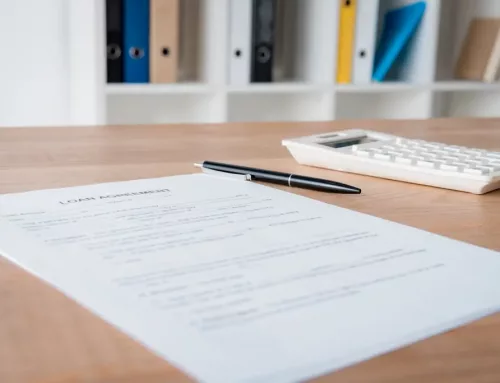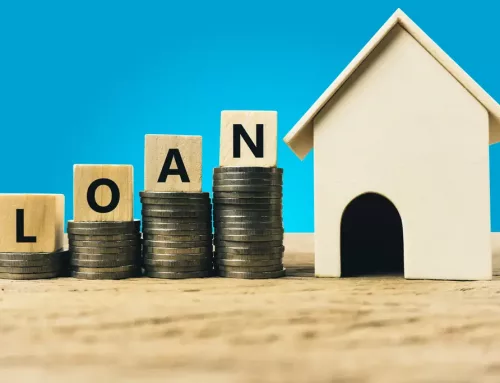Are you having trouble making mortgage payments? A loan modification can make your payments more affordable. If you’re struggling to pay off your mortgage according to the original home loan payment agreement, you can consider filing for a loan modification.
A loan modification involves changing the terms on your original home loan agreement that reduces your monthly loan payments. The goal of a loan modification is to help a homeowner catch up on past-due mortgage payments and avoid foreclosure. A loan modification process can be understood with the help of a reliable Wyandotte bankruptcy attorney.
The article will answer the following questions to help you understand how loan modification can help you pay off your debts:
- How Does Loan Modification Work?
- How Do I Qualify for a Mortgage Loan Modification?
- How Do I Apply for a Loan Modification?
- What are the Different Mortgage Modification Programs?
- What Are the Alternatives to Mortgage Modification?
- How Does a Mortgage Loan Modification Affect Your Credit?
…
How Does Loan Modification Work?
A mortgage modification can help reduce your monthly payments, though it may result in greater total costs for you over the lifespan of the loan. Lenders use different methods to modify mortgages such as:
- Reducing interest rate – Reduction of interest rates (either temporarily or permanently) can help reduce your monthly payments. This involves rate-reduction modifications that will increase your monthly payment amount and interest rate (usually every 5 years) for the remainder of the repayment period.
- Extending the term of the mortgage – Extending your repayment period can make your monthly payments more affordable. However, doing so will cause a significant increase in the amount of interest that you’ll pay for the loan.
- Changing the mortgage loan type – If your hardship is caused by an increase in the periodic payment associated with an adjustable-rate mortgage (ARM), then the lender may consider converting it to a fixed-rate mortgage to make it more manageable.
…
How Do I Qualify for a Mortgage Loan Modification?
Not everyone struggling to make a mortgage payment can get a loan modification. The qualifications for a home loan modification may differ depending on the guidelines of the mortgage lender and the type of loan. These are usually based on the amount that you owe, the property being used for collateral, and specific features of the collateral property. To qualify for a home mortgage modification, you must meet the following criteria:
- that you are behind on mortgage payments (prove that missing a payment is imminent)
- that your gross monthly income is just enough to make regular monthly payments under a modification
- you’ve experienced financial hardship (job loss, divorce, expensive medical bills, or disability)
- the house or residential property is your primary residence (homeownership)
You may be able to qualify for a mortgage modification if you can prove to your lender that your financial situation has changed drastically in a way that could permanently hinder your ability to make your payments as originally agreed. Before the approval of a loan modification, you need to undergo a trial period plan (usually 3 months) to show that you can afford the modified amount under the new mortgage terms.
…
How Do I Apply for a Loan Modification?
When you apply for a loan modification, you’ll be required to declare your financial information (proof of income, expenses, auto loan, or credit card debt), residential mortgage information, and the specifics of the hardship situation. If you’ve missed (or if you are about to miss) one or more monthly mortgage payments but haven’t yet gone delinquent, you have to inform your lender and explain the reasons for your missed payments. To apply for a mortgage modification, you have to get in touch with your servicer’s home retention department to request loss mitigation. A competent Wyandotte bankruptcy attorney can help you prepare your paperwork for the loan modification application. You need to include the following details in your application:
- personal information
- property information
- recent payslips or pay stubs
- tax return
- bank statement
- a hardship letter or affidavit
…
What are the Different Mortgage Modification Programs?
If you are struggling to make your mortgage payments, contact your mortgage lender or servicer immediately and ask about your possible options. Nowadays, most lenders and servicers offer various loan modification assistance programs. If your mortgage is backed by any federal agency or program, you may be eligible for a government mortgage modification plan depending on the circumstance and the type of mortgage. Several options can be offered for borrowers with Fannie Mae and Freddie Mac, VA-guaranteed, Federal Housing Administration or FHA-insured, and USDA mortgages. For example, if your mortgage is owned or guaranteed by either Fannie Mae or Freddie Mac, you may be eligible for this program.
…
What Are the Alternatives to Mortgage Modification?
In case you’re not eligible to apply for a mortgage modification, there are other options that you can consider to avoid or stop foreclosure. Potential options include:
- Repayment plans
- Mortgage forbearance agreement
- Refinancing
- Short sale process
- Deed in Lieu of Foreclosure Process
- File for bankruptcy
…
How Does a Mortgage Loan Modification Affect Your Credit?
Entering into a loan modification will likely hurt your credit, but it will be less severe compared to the effects of home foreclosure. You can take steps to improve the credit score that will help you get back on track. Your credit score is a number that is assigned to you by a credit reporting agency that determines how likely you are to repay credit or mortgage loans. Several factors can affect your credit score, including your payment history, the amount owed, length of credit history, types of credit used, and new credit applications. Credit scores can significantly recover within seven years following foreclosure, but most lenders view a foreclosure on your credit report as grounds for rejecting a loan application.
Some loan modification programs may oblige you to be delinquent on your monthly payments to qualify. In this case, your credit history will reflect the missed payments in addition to the loan modification itself. If a mortgage modification allows you to keep your home and continue making on-time mortgage payments, it will be easier for you to rebuild your credit score within a few years.
The Role of a Bankruptcy Lawyer
Applying for a loan modification can be complicated, confusing, and time-consuming especially if you don’t have enough knowledge regarding loss mitigation laws and the loan modification process. Therefore, hiring our experienced Wyandotte bankruptcy attorneys at Hammerschmidt Stickradt & Associates can ease your burden. Our bankruptcy law firm will help you go through all the documents you need and make sure that the paperwork is accurate to avoid denial. We will help you understand the different loan modification options, create an action plan, and negotiate loan terms with your lender.




